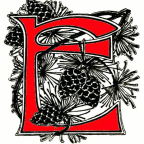
rasmus Darwin was able to bring together individuals with very different temperaments and interests to discuss and exchange original ideas. He organized a group that became known to historians as the Lunar Society because their monthly meetings were held on the Monday nearest the full moon so that they could have light to travel home on the unlit roads. Members of this group included, among others, Matthew Boulton, manufacturer of buckles and buttons and later steam engines; John Whitehurst, a clockmaker who wrote an early book on geology; John Mitchell, a professor from Cambridge with interests in geology and astronomy; William Small, a chemist who was also interested in lenses and clocks; James Kier, another chemist who owned a glassworks and later a chemical works at Tipton that produced hydrochloric and nitric acids, lead, and sodium carbonate (for glassmaking); James Watt, who joined because of his partnership with Matthew Boulton and who turned the steam engine from a curiosity into a working source of power; Josiah Wedgwood, who transformed the pottery industry and made Britain a world leader in this important technology; William Withering, a medical doctor with a deep interest in botany; Samuel Galton, a gun-maker with interests in optics, lenses and light; Richard Edgeworth, a wealthy landowner with estates in Ireland who invented numerous mechanical devices; and Joseph Priestly, a chemist and dissenting preacher who was forced to flee to America after his home and laboratory had been destroyed by a mob.
Initially the Lunar Society met to discuss their experiments and inventions, to indulge in what Darwin called "a little philosophical laughing." In doing so, they were part of a wider movement which tried to investigate and better understand nature. Because many of them were also businessmen, they took their ideas further and frequently turned them into practical use. In the 18th century there were no clear distinctions between the arts and sciences, invention and design, dreamer and entrepreneur, doctor or poet. For this reason, a wide range of ideas could be, and were, discussed with considerable authority. Ten of the Lunar Society's members, including Darwin, were or became members of the Royal Society: together they made an informal technical university and research centre in the English Midlands which became an important stimulus for industrial change.
Bibliography
King-Hele, D. Doctor of Revolution, The Life and Genuis of Erasmus Darwin. London: Faber and Faber, 1977.
King-Hele, D. Erasmus Darwin: A Life of Unparalleled Achievement. London: Giles de la Mare Publishers, 1999.
King-Hele, D. Erasmus Darwin and Evolution. Sheffield: Stuart Harris, 2014.
Smith, C.U.M. and R. Arnott, eds. The Genius of Erasmus Darwin. Aldershot, Hampshire, England and Burlington, VT: Ashgate, 2005.
Uglow J. The Lunar Men: The Friends who made the Future. London: Faber and Faber, 2002.
Last modified 23 April 2018